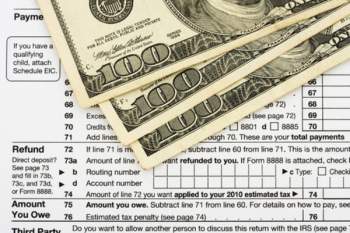
Tax Forms You Need

Tax forms are legal documents used by taxpayers and tax-exempt organizations to formally report financial information to the Internal Revenue Service or other governing bodies of the United States.
All tax forms are used to report income and calculate taxes that must be paid to the federal government (as well as the local governments) of the United States of America.
The IRS, as a result of the advancements made in computer technology, typically offers two versions of each tax form: the simplified version known as the EZ model and the standard-issued tax forms. If you need legal advice and assistance, contact tax lawyers.
Examples of Federal Tax Forms:
Form 990: This IRS form is titled “Return of Organization Exempt from income Tax.” The form 990 is submitted by all tax-exempt organizations and non-profits to notify the IRS with annual financial information. The short
Form 990, known as the 990-EZ may be filed by organizations with gross receipts between $25,000 and $500,000 and total assets that are less than $2.5 million.
The Form 990 provides the public (individual tax payers and corporations) with financial information about a given tax-exempt organization; typically the Form 990 is the only source of such information. As a result, the Form 990 is used by government agencies to prevent such organizations from abusing their tax-exempt status.
1040 Series: The Form 1040 is the classic tax form used to report an individual’s personal income tax. These tax forms are the starting point for an individual’s Federal income tax returns that must be filed with the Internal Revenue Services.
Form 1040, Form1040ES, Form 1041ES, Form 1040A, Form 1040EZ
Any full-time resident individual in the United States who is an income taxpayer may use the standard form 1040, however, those with uncomplicated tax returns (a lack of itemized deductions, no capital gains) may be able to use the simplified Form 1040A, known as the short form or 1040EZ. The Form 1040, which is the most comprehensive tax form, contains 11 attachments, known as schedules that may need to be filed depending on the taxpayer’s specific obligation. The attachments are as followed:
• Schedule A : IRS form, Itemizes all allowable deductions against income; instead of filling out Schedule A, taxpayers may choose to take a standard deduction between $5,700 and $15,800 (for tax year 2010), depending
on age, filing status, and whether the taxpayer and/or spouse is blind.
• Schedule B : IRS form, Details dividend and/or income generated from interest payments, and is required if either interest or dividends received during the tax year exceed $1,500 from all sources or if the filer had certain foreign accounts.
• Schedule C : IRS form, Lists income and expenses related to self-employment, and is used by sole proprietors.
• Schedule C-EZ : IRS form
• Schedule D : IRS form, Section of the 1040 tax forms used to describe the intricacies associated with capital gains and losses incurred during the tax year. Schedule D also calculates the tax amount due given the special reduced tax rates applied to capital gains and qualified (domestic) dividends.
• Schedule E : IRS form, Schedule E is used to report income and expenses arising from the rental of real property, royalties, or from pass-through entities, such as trusts, estates, partnerships, or S Corporations
• Schedule EIC : IRS form, Used to document a taxpayer's eligibility for the Earned Income Credit.
• Schedule F : IRS form, Used to report income and expenses related to farming.
• Schedule H : IRS form, Used to report taxes owed due to the employment of household help.
• Schedule J : IRS form, Used when averaging farm income over a period of three years.
• Schedule L : IRS form, Used to figure an increased standard deduction in certain cases.
• Schedule M : IRS form, (2009 and 2010) is used to claim the up to $400 tax credit
• Schedule N : IRS form
• Schedule R : IRS form, used to calculate the Credit for the Elderly or the Disabled.
• Schedule SE : IRS form, Used to calculate the self-employment tax owed on income from self-employment (such as on a Schedule C or Schedule F, or in a partnership).
• Form 1041 : IRS form, Used by trusts and estates for tax returns
• Form 1065 : IRS form, Tax forms used by partnerships to file tax returns
• Form 1098 : IRS form, Tax forms regarded as the Mortgage Interest Statement; these tax forms are used to report interest that a taxpayer has satisfied on his or her mortgage.
• 1099 Tax Forms : IRS form, These tax forms are used in the United States income taxation system to prepare and file various information concerning salaries, wages, and tips.
NEXT: 1040 Form

















